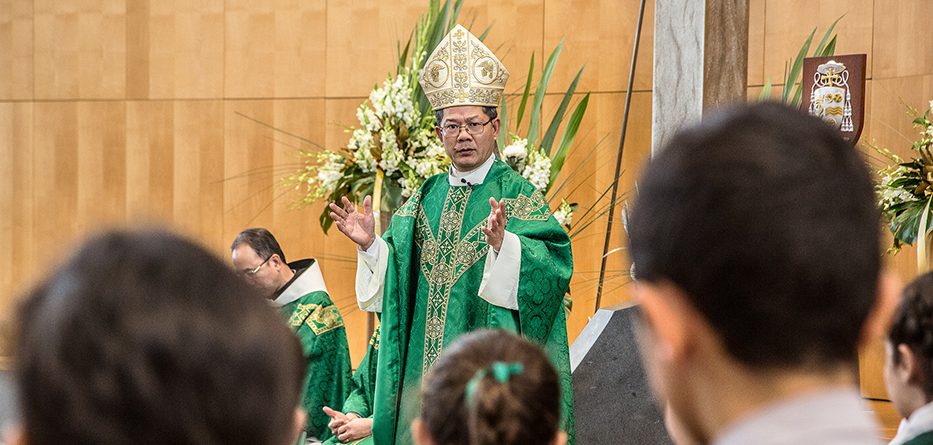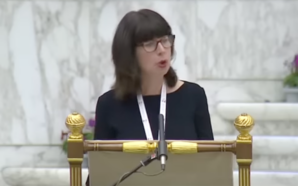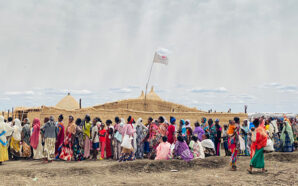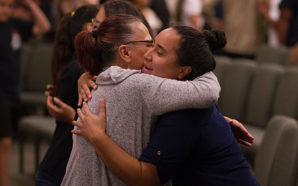Most Reverend Vincent Long Van Nguyen OFM Conv DD STL, Bishop of Parramatta
Homily of the 25th Sunday in Ordinary Time in Year A with the Celebration of the Anniversaries of Marriage at St Patrick’s Cathedral, Parramatta
24 September 2017
Dear friends,
One of the popular notions in our Western society, especially in the Trump-era, is that success is the mark of greatness. Years ago, there was a beer commercial that associates hard work with success. It ends with something like “for those who’ve made it, the Swan is made for you”. The Swan beer did not quite crack the market. However, the myth of self-made success behind that commercial and indeed pervasive in our culture still holds sway among many. It is the basis for what is known as a meritocracy, which is a system that rewards people according to their abilities and achievements. Those who made it to the top of the ladder are glorified. Conversely, those who did not make it are ignored or labeled as failure.
The Word of God provides a corrective to this popular notion. In fact, Jesus challenges the myth of self-made success and merit-based system. In one of the most intriguing parables, he upsets the expectations of the status seeking and result-driven society. He makes it clear that the economy of the Kingdom is not based on individual merit, competition, success and achievement; rather it is predicated on the common good, justice, inclusion and equality for those who are at the margins.
In the parable, the owner of the vineyard goes into the market square and hires workers to work in his vineyard. He does this at different hours of the day and still he employs them, some as late as the eleventh hour. At the end of the working day, the owner pays them their wages starting with the last arrival. These receive a generous day’s payment even though they have only worked for less than a day. Seeing this, the other workers are excited. “Surely we will be paid more because we have put in more hours” they thought to themselves. Yet to their disappointment, they too get as much pay as the Johnny-come-latelies.
Jesus concludes by saying that the Kingdom is not some kind of reward system that favours the more able, the more worthy and the more privileged members of society. The reign of God is really about paying attention to the weakest link in the chain. It is about taking care of the most disadvantaged and the most vulnerable among us.
The parable makes us humble because it removes the security that we rely on in terms of who we are, what we have and the sense of worth that is linked with our successes and achievements. We don’t deserve more than others because of where we were born, where we live, what attributes we have etc… The parable is actually designed to prod at our sense of entitlement and our claim to what is ours at the exclusion of those whom we consider less worthy. It challenges us to think and act in the way that God in Jesus has shown us, which is based on the justice of the Kingdom and the very mercy of God.
Brothers and sisters,
Today is also Social Justice Sunday and the Church has put out a message, which I encourage everyone to take home, read, reflect and act accordingly. It is addressed to our political and business leaders, certainly, but also to every one of us, inviting all to help build a society that is at the service of all, particularly those who have been excluded from the vast benefits of our economic prosperity.
Through the parable, we can see aspects of our own society. We are reminded of the faces of the most vulnerable including the lowest paid, often in part-time work, those living on income support, those at risk of homelessness, and Indigenous Australians. They are the asylum seekers, refugees and those easily expendable in the harsh calculus of the political system.
The owner of the vineyard feels real solidarity with these. He does not blame them for their inability to find work. He sympathises with them. He sees them as deserving a basic human dignity. He gives them what they need for their well-being and their family’s. We are challenged to see and act with the concern, generosity and compassion of the vineyard owner. We are called to create a society where the well-being of the most vulnerable is a matter of priority for everyone.
Jesus subverts the system of rewarding people on the basis of their achievements and privileges. In the eyes of those who have worked more hours in the field, he seems to be unfair; he seems to take what belongs to them and gives it to the late comers. That sounds like a communist. Yet the truth of the matter is Jesus is more interested in distributive justice. He challenges the culture of entitlement and the survival of the fittest. He points us to the whole new way of living and relating. His is a new paradigm of shared humanity, equality, inclusion and human flourishing.
Today, we give thanks for the gift of marriage that has been lived and shared with generosity. In a way, the family is the best expression of an economy of inclusion where its members are valued not so much for what they do but for who they are. It is a place where love overcomes all things and bears all things. Let us pray that this economy of inclusion that embraces the young and the old, the weak and the strong, the able bodied and the handicapped, the rich and the poor etc. may come to reflect the Kingdom of Jesus.
Let us pray that we learn to operate out of Jesus’ new paradigm, which will transform us into humble servants of the Kingdom. May our sharing at this table strengthen us in our commitment to live and relate according to the values of the Gospel. May we Рfilled with the fullness of life and love of God Рshare and live out the driving passion of Christ to be men and women for others.








